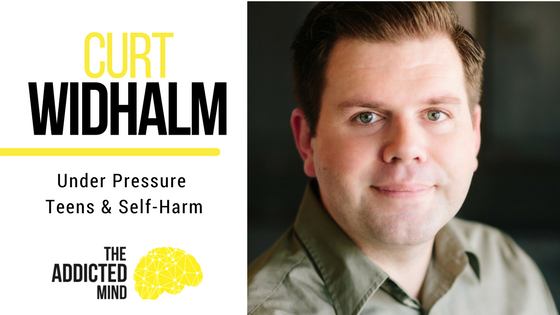In general, self-harm behaviors, which could include cutting, burning, or over-exercise, are quick ways for teens to release their emotions in a very visual way because they are often too busy to adequately learn how to deal with their stress or trauma. They could also act this way because their living environment does not allow them the space to express their emotions or release their negative energy in healthy ways, perhaps due to the demeanors of their parents or complications in their living situation. In Curt’s experience, a main source of stress for teens who engage in self-harm is the feeling that they will never be good enough for their parents, whether their parents are pushy and over-involved or very withdrawn.
Signs that parents can watch for in their teens are emotional and physical withdrawal, explaining away repeated injuries, covering up their arms and legs even in very warm weather, intense emotions such as rage or anxiety, and their teen talking about other people who engage in self-harm. If and when parents notice these behaviors, they often have their teen begin seeing a therapist to address these behaviors. A therapist will primarily aim to establish a good connection with the teen by normalizing their behavior and just listening to them as they begin to open up about their emotions, and they will begin to equip the teen with healthy ways to cope with their emotions in an attempt to have the teen abandon their self-harming tendencies.
To anyone struggling with self-harming behaviors, Curt encourages you to reach out for help by finding someone you can trust who will listen without judgment as you share your feelings. There are healthy ways to cope with your daily stresses and emotions, and it may be helpful for you to take a step back from a few of your activities in order to provide yourself with more capacity to cope.
To find out more about Curt Widhalm, visit his website (www.curtwidhalm.com), and be sure to check out the Modern Therapist’s Survival Guide podcast that he co-hosts (www.mtsgpodcast.com).

